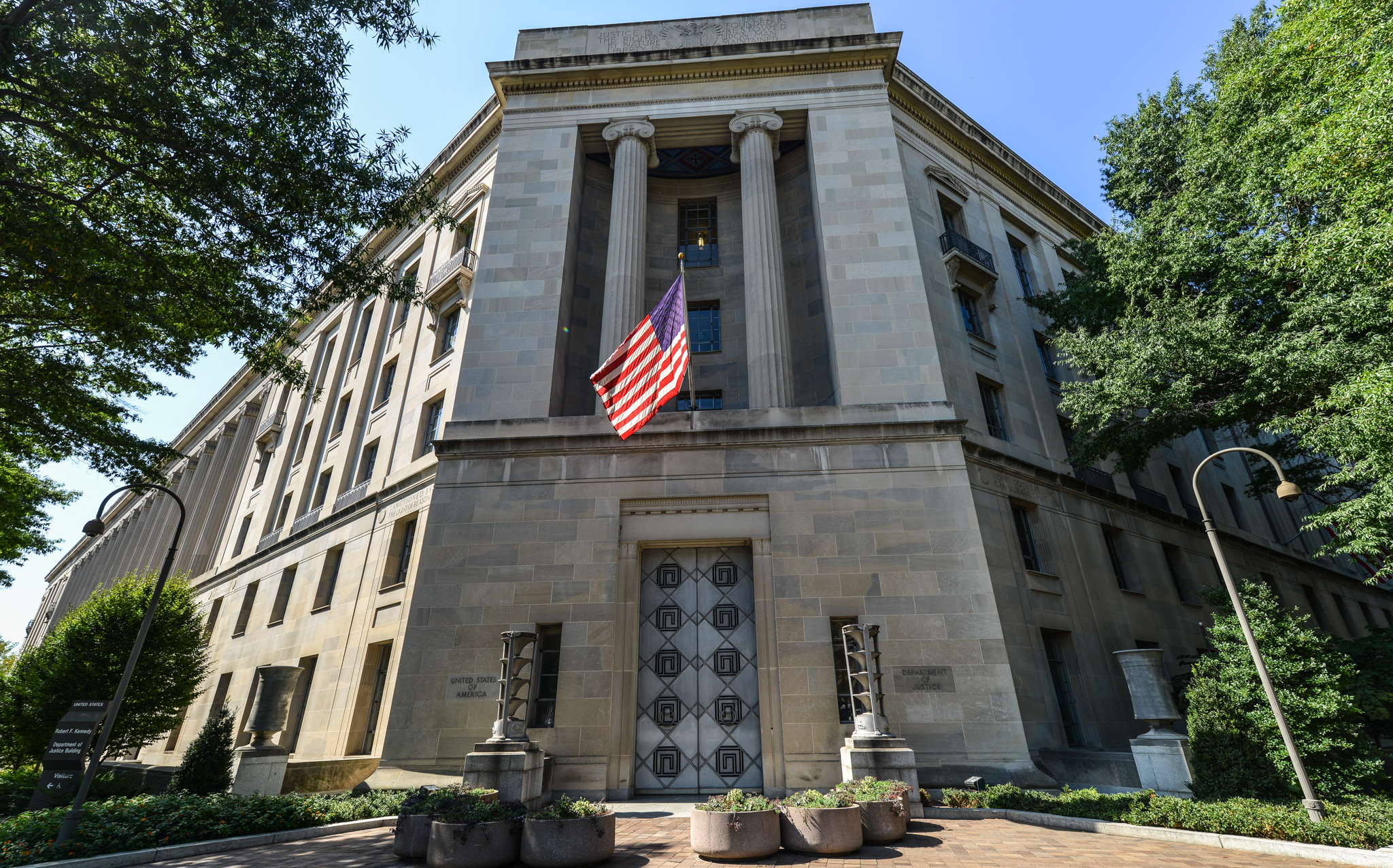
ALLY MINTZER – OCTOBER 28TH, 2020
EDITOR: KAT XIE
Update: This article was written before the DOJ filed an antitrust lawsuit against Google on Oct 20th, 2020.
In late September 2020, it was announced that the Blue Cross Blue Shield Insurance Group reached a $2.7 billion antitrust settlement deal for limiting competition among their three-dozen member companies (which include Anthem and Health Care Services Corp). Claims against the insurance group that covers 1 in 3 Americans first arose in 2012 with a class action lawsuit consisting of employers and policyholders with Blue insurance. As part of the tentative settlement, the Blue insurance group will loosen a rule that limits competition among its member groups and suspend a rule that limits revenue from non-Blue brands.
Yet UC Hastings Law Professor Tim Greaney notes that the primary focus of the litigation, Blue’s licensing scheme, would be virtually unaffected. Moreover, other critics of U.S. federal antitrust agencies assert that antitrust enforcement has fallen short in the past few decades, especially as mergers in Big Tech go unchecked. Are they right, and if so, why?
WHAT IS ANTITRUST?
Antitrust law strikes at a simple yet profound notion: unbridled power corrupts. In a well-functioning democracy, it is necessary to have a system of checks and balances to avoid capture by a specific party. In theory, our legislative, executive, and judicial branches ensure that no one branch breaks the law or accumulates overwhelming power; antitrust law is intended to do the same for private corporations.
Antitrust law is aptly named: anti trusts, or monopolies. The Antitrust Division of the U.S. Department of Justice and the Federal Trade Commission were created to prosecute violators and stop anticompetitive practices like monopolization, predatory pricing, and collusion. Beyond distorting markets, anticompetitive practices distort politics, often giving overwhelming power to narrow corporate interests at the expense of the general public.
THE RISE OF SETTLEMENTS
From the 1990s, federal antitrust agencies have increasingly reached settlement agreements instead of pursuing litigation. The last “Big Case,” United States v. Microsoft Corporation, resulted in a consent decree, which is a settlement without the admission of guilt. In this case, the allegation that Microsoft became a monopolist in the PC market with its Windows Operating system led to the demise of Netscape’s web browser in an attempt to control internet access. For both the U.S. Department of Justice, Antitrust Division and the Federal Trade Commission, approximately 93% of all cases are settled or result in consent decrees. This trend towards settlement inevitably dictates how the agencies are run and which cases are pursued. Evidently, most resources and time are spent on investigation rather than litigation.
In class action litigation, settlement can be an appealing option for both parties—especially for defendants. Antitrust laws include a treble damage provision from the Clayton Act, meaning that damages are tripled since it is understood that most antitrust violations are undetected. The trebling does not apply to settlements though, making a settlement even more appealing to the defense. Plaintiffs too find settlements attractive due to the difficulty of winning a case and certainty of a settlement (especially when pressured by class council), although it is likely they are well undercompensated for damages. Even presiding judges lean towards settlements; they are much quicker and efficient, and promptly clear the docket.
THE IDEA THAT THERE ARE “GOOD TRUSTS”
Antitrust law has been reinterpreted throughout the century, yet the most influential ideology stems from the Chicago School of Economics with legal scholar and Reagan-appointed federal judge Robert Bork. These economists and legal scholars introduced a legal principle called “The Consumer Welfare Standard”: the goal of antitrust laws is to reduce prices for consumers, and trusts that do not raise prices are, well, not necessarily breaking the law. (Ironically, as the Consumer Welfare Standard became the foundation for anti-antitrust defenses, price markups have increased dramatically since the 1990’s among firms in the top half of the distribution). This standard does not adequately consider the true purpose of antitrust law, stopping market consolidation and excessive power imbalances, yet it has radically shifted antitrust perspectives and legal proceedings since. Perhaps the most influential Justice to shape constitutional interpretation, Justice Antonin Scalia famously scoffed at his confirmation hearing: “In law school I never understood [antitrust law]. I later found out in reading the writings of those who now do understand it, that I should not have understood it because it did not make any sense then.” According to the Chicago School, the U.S. government should not be completely anti trusts; there are “good trusts” too.
As such, the courts have abandoned aggressive antitrust stances, like those of Presidents Theodore Roosevelt and William Taft in the 1910s with their multitude of break-ups, or more recently in the 1960s. Now, the dominant ideology is that it is better to let the “market forces” work themselves out than to adopt aggressive antitrust enforcement. However, the idea that prosecuting an innocent company that was not in fact anticompetitive is worse than letting an anticompetitive company continue to be so has been disproven, yet has drastically affected court decisions and increased procedural requirements for plaintiffs.
For instance, in the 2003 case of Verizon Communications v. Trinko, where an AT&T customer that received cell service by Verizon-owned lines was hampered by slower cell service, the Supreme Court unanimously sided with Verizon. This case consequently narrowed a plaintiff’s standing to sue against anticompetitive practices, and dismissed antitrust claims in regulated industries. In 2017, the Supreme Court case of Ohio v. American Express held that American Express’ anti-steering provision of pressuring merchants to use Amex cards did not violate antitrust laws. At the heart of this case was how to approach two-sided markets, where American Express catered to both customers and merchants. Ultimately, from this decision, the Court asserted that anticompetitive practices in one market are fine—as long as they help a certain subset (not the whole) of the consumers in the other market.
Today, Big Tech companies, including Google and Amazon, donate hundreds of thousands of dollars to think tanks and law schools like the Global Antitrust Institute at the Antonin Scalia Law School at George Mason University, the Cato Institute, and the American Enterprise Institute that advocate for a laissez-faire Chicago-school interpretation of antitrust law. These institutes host seminars for federal judges, inform policies, and shape legal thought. This corporate-funded maneuver to refine legal thought for their benefit is not new; between 1976-1999, the Manne Economics Institute for Federal Judges, funded by corporations such as AT&T, IBM, and Merrill Lynch, trained approximately half of all federal judges. As expected, participating judges ruled more often against environmental and labor protections and advocated for more relaxed antitrust enforcement.
FEWER RESOURCES FOR ENFORCEMENT
As market consolidation increased since the 1990s, resources devoted to antitrust enforcement have fallen. GDP growth has far outsripped antitrust resources; since 1979, the GDP increased 680%, while antitrust has increased 359%. Furthermore, budget appropriations today are 18% lower compared to where they were in 2010. When the entire budgets of antitrust agencies are equivalent to what companies like Facebook make in several days, it is clear that the corporations have the upper hand.
Consequently, antitrust filings have also reached historic lows. In 2018, only 16 criminal cases were filed: the fewest since 1990. Although merger filings have increased 80% between 2010 and 2018, enforcement actions have stagnated at around 40 per year.
THE FUTURE OF ANTITRUST ENFORCEMENT
State attorney generals, who have become more aggressive than federal enforcers, are conducting investigations into Google and Facebook. After approving the acquisitions of Instagram and WhatsApp in 2012 and 2014, it is reported that the FTC is now launching probes into Big Tech firms, while the DOJ is expected to file a lawsuit against Google very soon.
Congress is also positioning itself as a primary enforcer for antitrust enforcement. Following a one-year investigation of Apple, Facebook, Amazon, and Google, on October 6th the House Judiciary subcommittee published a 446-page report highlighting the need for them to be broken up. Moreover, the House asserted the need for Congress to take a stronger position on antitrust because of the passivity of the courts and agencies, writing, “Congress—not the courts, agencies, or private companies—enacted the antitrust laws, and Congress must lead the path forward to modernize them for the economy of today, as well as tomorrow.”
We are now seeing parallels with the Gilded Age of the early 20th century, replete with extreme market consolidation, anticompetition, and economic inequality. Will we see a resurgence of an antitrust agenda that reframes the purpose of antitrust law in the Courts, empowers Congress to pass laws reflecting our digital economy, and equips antitrust agencies with adequate enforcement resources? Time will tell.
Featured Image Source: ShareAmerica
Disclaimer: The views published in this journal are those of the individual authors or speakers and do not necessarily reflect the position or policy of Berkeley Economic Review staff, the Undergraduate Economics Association, the UC Berkeley Economics Department and faculty, or the University of California, Berkeley in general.



